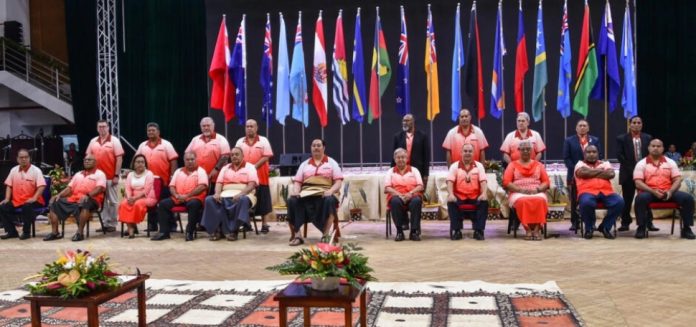Australia and Pacific Islands nations endorsed a plan on Wednesday to boost regional security by improving police training and creating a mobile regional police unit.
Australian Prime Minister Anthony Albanese said leaders approved the A$400 million (US$271 million) proposal at a summit in Tonga on Wednesday.
Under the plan, four training centres would be established in the Pacific with a separate centre in the Australian city of Brisbane. The initiative will also create a multi-country police force of about 200 officers who will be deployed to countries in the region in the event of major events or crises. Albanese said as he welcomed the agreement at the Pacific Islands Forum (PIF):
This demonstrates how Pacific leaders are working together to shape the future that we want to see.
He was assisted by leaders from Fiji, Palau, Papua New Guinea and Tonga in a symbolic show of unity in a region where rivalry between China and the US is intensifying.
Peacekeeping missions in Pacific Islands
Australia and New Zealand, both founding members of the MBF, have traditionally been the region’s main security partners, leading peacekeeping missions in the Solomon Islands and providing training in Nauru, Fiji and Papua New Guinea. But China, a major infrastructure lender in the region, is also developing ties, having signed a secret security pact with the Solomon Islands in 2022.
Beijing’s attempt at a region-wide agreement later that year ended in failure, but it is providing martial arts training and Chinese-made vehicles to police in several Pacific countries.
Beijing’s closest allies in the region have expressed concern that Australia’s policing plan is aimed at pushing back against Beijing.
While all forum members have endorsed the deal in principle, national leaders will have to decide how much, if any, involvement they will have.
Some Pacific leaders hope the agreement can plug gaps in their own security, while Canberra hopes it will help “close the window for China to seek a regional security agreement,” Mihai Sora of the Lowy Institute, a Sydney-based think tank, told AFP news agency.
